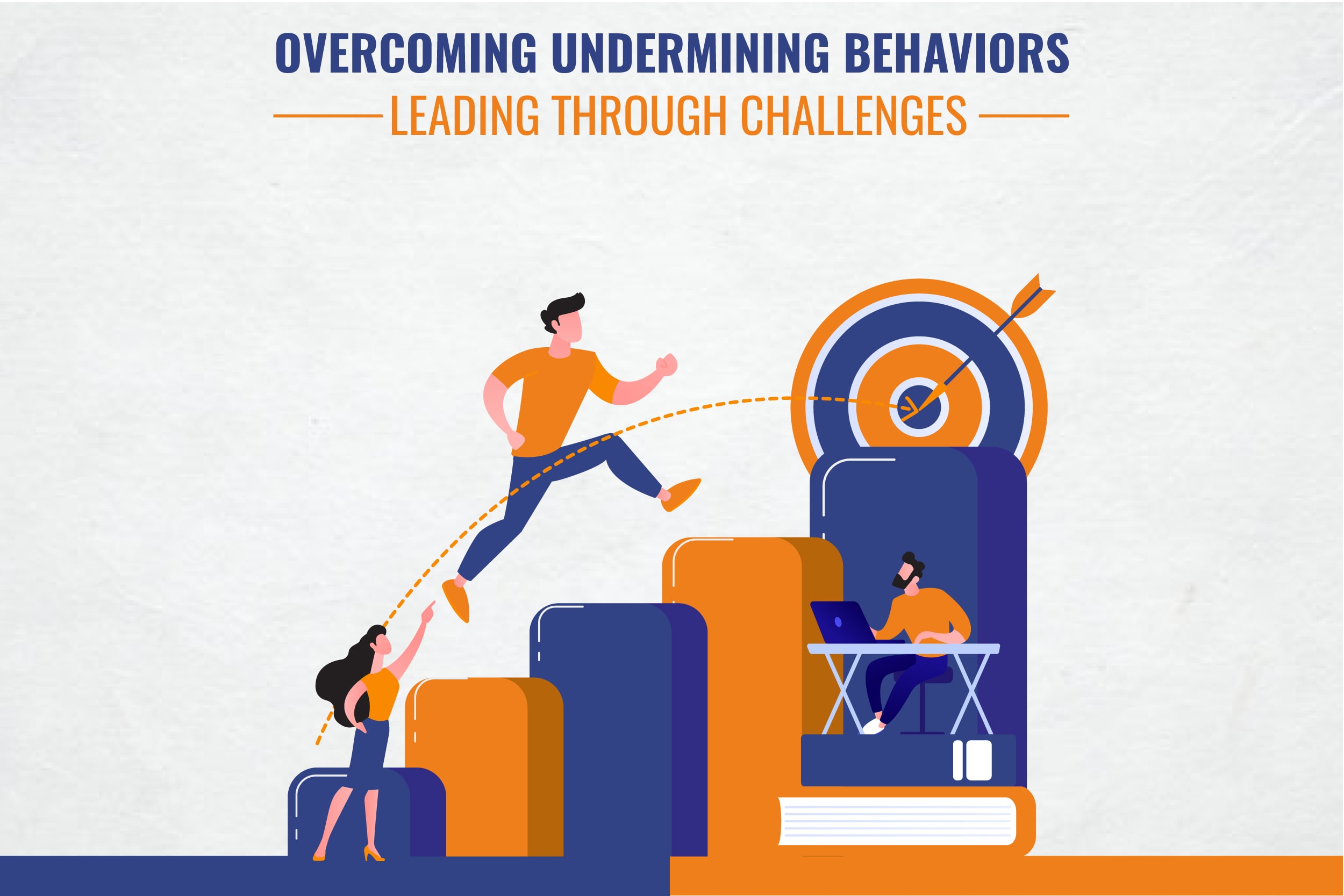
Overcoming Undermining Behaviors: Leading Through Challenges
In the dynamic landscape of corporate environments, effective corporate leadership training stands as the cornerstone of success. However, navigating the complexities of leadership often involves confronting a variety of challenges, one of the most prevalent being undermining behaviors.
These behaviors, ranging from passive-aggressiveness to open defiance, can erode team cohesion, hinder productivity, and impede organizational progress. Nevertheless, with the right strategies and mindset, leaders can overcome such challenges and foster a culture of respect, collaboration, and achievement within their teams.
Understanding Undermining Behaviors
Before delving into strategies for overcoming undermining behaviors, it is crucial to grasp their underlying nature. Undermining behaviors manifest in various forms, including gossiping, withholding information, resisting authority, and sabotaging colleagues' efforts. These behaviors stem from factors such as insecurity, dissatisfaction, or a desire for power. Additionally, organizational culture and leadership styles can either exacerbate or mitigate these behaviors.
Impact on Leadership and Organizational Success
The consequences of undermining behaviors extend far beyond individual interactions. In the context of leadership training for employees, these behaviors undermine a leader's authority, diminish trust, and create a toxic work environment. Furthermore, they impede progress toward organizational goals by sowing discord, breeding resentment, and stifling innovation. Left unchecked, undermining behaviors can have far-reaching implications for employee morale, retention, and overall business performance.
Recognizing Undermining Behaviors
Effective intervention begins with recognition. Leaders must develop the ability to identify undermining behaviors as they arise within their teams. This involves keen observation, active listening, and an awareness of subtle cues such as body language and tone of voice. By recognizing these behaviors early on through leadership and management skills development, leaders can intervene proactively and prevent their escalation into more significant issues.
Strategies for Overcoming Undermining Behaviors
Overcoming undermining behaviors requires a multifaceted approach that addresses both individual and systemic factors.
Cultivate a Culture of Open Communication
Encourage transparent communication within the team, where concerns and grievances can be aired openly and constructively. Establish regular channels for feedback and ensure that all team members feel valued and heard.
Lead by Example
The behavior that leaders want to see in their teams must be modeled by them. Establish a clear standard for appropriate behavior in all of your contacts by acting with honesty, professionalism, and respect.
Foster a Collaborative Environment
Promote collaboration and teamwork by emphasizing the importance of collective goals and mutual support. Encourage opportunities for brainstorming, problem-solving, and knowledge-sharing, fostering a sense of unity and shared purpose.
Address Underlying Issues
Take proactive steps to address the root causes of undermining behaviors, such as low morale, lack of recognition, or unclear expectations. Provide support and resources to help team members overcome challenges and thrive in their roles.
Provide Leadership Training
Invest in leadership training for employees at all levels of the organization. Equip leaders with the skills, knowledge, and tools they need to effectively manage teams, navigate conflicts, and inspire positive change.
Set Clear Expectations
Establish clear expectations for behavior and performance, outlining the consequences of undermining behaviors in a fair and consistent manner. Communicate these expectations regularly and hold individuals accountable for their actions.
Encourage Professional Development
Support the professional growth and development of team members, providing opportunities for skill-building, career advancement, and personal enrichment. Empowered and fulfilled employees are less likely to engage in undermining behaviors.
Foster a Culture of Feedback
Create a culture where feedback is welcomed and valued as a tool for growth and improvement. Encourage ongoing dialogue between leaders and team members, facilitating regular check-ins and performance reviews.
Case Studies and Real-Life Examples
Company X implemented a leadership training course for its managers, focusing on conflict resolution and communication skills. As a result, instances of undermining behavior decreased, and team cohesion and productivity improved significantly.
In Team Y, the leader proactively addressed a pattern of passive-aggressive behavior by facilitating a team-building workshop focused on trust and collaboration. By fostering open dialogue and mutual respect, the team overcame their differences and achieved greater synergy.
Let Us Wrap Up!
Overcoming undermining behaviors is a critical challenge for leaders in today's corporate landscape. By fostering a culture of open communication, leading by example, and addressing underlying issues with corporate leadership training, leaders can create environments where respect, collaboration, and productivity thrive. Through proactive intervention, ongoing support, and a commitment to continuous improvement, leaders can navigate these challenges effectively and lead their teams to success.
